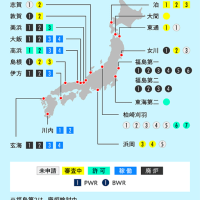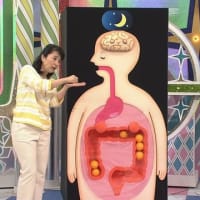2016-01-26 07:13:37 UCSF News Center. wooris.jp/
http://wooris.jp/archives/173614
Home > UCSF News Center >
Sugared Soda Consumption, Cell Aging Associated in New Study
Sugared Soda Consumption, Cell Aging Associated in New Study
UCSF Scientists Find Shorter Telomeres in Immune Cells of Soda Drinkers

By Jeffrey Norris on October 16, 2014
Sugar-sweetened soda consumption might promote disease independently from its role in obesity, according to UC San Francisco researchers who found in a new study that drinking sugary drinks was associated with cell aging.
The study revealed that telomeres – the protective units of DNA that cap the ends of chromosomes in cells – were shorter in the white blood cells of survey participants who reported drinking more soda. The findings were reported online Oct. 16 in the American Journal of Public Health.
The length of telomeres within white blood cells – where it can most easily be measured – has previously been associated with human lifespan. Short telomeres also have been associated with the development of chronic diseases of aging, including heart disease, diabetes and some types of cancer.
“Regular consumption of sugar-sweetened sodas might influence disease development, not only by straining the body’s metabolic control of sugars, but also through accelerated cellular aging of tissues,” said Elissa Epel, PhD, professor of psychiatry at UCSF and senior author of the study.
“This is the first demonstration that soda is associated with telomere shortness,” Epel said. “This finding held regardless of age, race, income and education level. Telomere shortening starts long before disease onset. Further, although we only studied adults here, it is possible that soda consumption is associated with telomere shortening in children, as well.”
The authors cautioned that they only compared telomere length and sugar-sweetened soda consumption for each participant at a single time point, and that an association does not demonstrate causation. Epel is co-leading a new study in which participants will be tracked for weeks in real time to look for effects of sugar-sweetened soda consumption on aspects of cellular aging. Telomere shortening has previously been associated with oxidative damage to tissue, to inflammation, and to insulin resistance.
Based on the way telomere length shortens on average with chronological age, the UCSF researchers calculated that daily consumption of a 20-ounce soda was equivalent to an average of 4.6 years of telomere shortening. This effect on telomere length is comparable to the effect of smoking, or to the effect of regular exercise in the opposite, anti-aging direction, according to UCSF postdoctoral fellow Cindy Leung, ScD, from the UCSF Center for Health and Community and the lead author of the newly published study.
Elissa Epel, PhD
Cindy Leung, ScD
The average sugar-sweetened soda consumption for all survey participants was 12 ounces. About 21 percent in this nationally representative sample reported drinking at least 20 ounces of sugar-sweetened soda a day.
“It is critical to understand both dietary factors that may shorten telomeres, as well as dietary factors that may lengthen telomeres,” Leung said. “Here it appeared that the only beverage consumption that had a measurable negative association with telomere length was consumption of sugared soda.”
The finding adds a new consideration to the list of links that has tied sugary beverages to obesity, metabolic syndrome, type 2 diabetes, and cardiovascular disease, and that has driven legislators and activists in several U.S. jurisdictions to champion ballot initiatives that would tax sugar-sweetened beverage purchases with the goal of discouraging consumption and improving public health.
The UCSF researchers measured telomeres after obtaining stored DNA from 5,309 participants, ages 20 to 65, with no history of diabetes or cardiovascular disease, who had participated in the nation’s largest ongoing health survey, called the National Health and Nutrition Examination Survey, during the years 1999 through 2002. They found that the amount of sugar-sweetened soda a person consumed was associated with telomere length, as measured in the laboratory of Elizabeth Blackburn, PhD, professor of biochemistry at UCSF and a winner of the 2009 Nobel Prize in Physiology or Medicine for her telomere-related discoveries.
Additional study authors include, from UCSF, Nancy E. Adler, PhD, professor of psychiatry and director of the Center for Health and Community, and Jue Lin, PhD, an associate researcher with Blackburn’s lab; from UC Berkeley, Barbara A. Laraia, PhD, director of public health nutrition; from the University of Michigan, Belinda Needham, PhD, assistant professor of epidemiology; and from Stanford University, David H. Rehkopf, ScD, assistant professor of medicine.
Major funding for the study was provided by the National Institutes of Health. Lin is a shareholder of Telomere Diagnostics, Inc.
UCSF is the nation's leading university exclusively focused on health. Now celebrating the 150th anniversary of its founding as a medical college, UCSF is dedicated to transforming health worldwide through advanced biomedical research, graduate-level education in the life sciences and health professions, and excellence in patient care. It includes top-ranked graduate schools of dentistry, medicine, nursing and pharmacy; a graduate division with world-renowned programs in the biological sciences, a preeminent biomedical research enterprise and top-tier hospitals, UCSF Medical Center and UCSF Benioff Children's Hospitals.
Most Popular
Biological Basis Found for Sensory Processing Disorders in Kids
Brain image of child with sensory processing disorders, with abnormal areas highlighted in red
Cannabis-Based Drug Reduces Seizures in Children With Treatment Resistant Epilepsy
stock image of marijuana plant
Poor Health: When Poverty Becomes Disease
Poverty can lead to disease, and disease to poverty
Big Ideas in Health and Science for 2016
stock illustration representing big ideas
Lifestyle Changes May Lengthen Telomeres, A Measure of Cell Aging
Stock image of seniors in yoga clas
2016-01-26 07:13:37 UCSF News Center. wooris.jp/
タバコ級にヤバい!毎日飲むと「4.6歳も細胞が老化」する飲み物とは
2015/11/30 07:00 by 坂本正敬
ツイート
Share
タバコ級にヤバい!毎日飲むと「4.6歳も細胞が老化」する飲み物とは疲れたときにプシュッと開けて飲む、いいですよね~。 えっ? ビールの話ではありません。炭酸飲料水の話です!
全国清涼飲料工業会がまとめた“清涼飲料水品目別生産量推移”を見ると、他の清涼飲料水を押さえて近年は炭酸飲料が群を抜いて生産されていると分かります。
ただ、この炭酸飲料、飲み過ぎると実は細胞の老化原因になるとご存じでしたか? そこで今回は米カリフォルニア大学サンフランシスコ校の情報を基に、飲み過ぎに要注意の炭酸飲料とその量をまとめます。
■1:砂糖入りの炭酸飲料が細胞を老化させる
炭酸飲料と言っても色々な種類が売られていますが、老化の原因になると指摘される炭酸飲料は砂糖の入ったタイプ。
米カリフォルニア大学サンフランシスコ校によると、この手の炭酸飲料は細胞の老化を早める原因になるのだとか。
そもそも細胞とは学校で習った通り、人間の体そのものです。人体は60兆個の細胞が積み上がってできているのですね。
そうした細胞は全て、分裂を繰り返して死んでいく“寿命”があります。この寿命は細胞によって違い、1日半で死んでしまう細胞もあれば、神経細胞や心筋細胞のように100年以上生き続ける細胞もあります。
■2:老化の悪影響はタバコ級
しかも同大学の調べによると、500mlペットボトルの砂糖入り炭酸水を1日1本程度のペースで摂取するだけで、4.6年分も細胞の寿命が短くなってしまうと分かったとか。
言い換えれば細胞が4.6歳も老け込んでしまうのですね。この悪影響はなんと喫煙と同程度……。
まだ同調査には課題が多いと研究者たち自身も認めていますが、これから炭酸飲料水を飲む際には成分表をチェックし、炭水化物(糖質+食物繊維)の量を確かめてください。
炭酸飲料水には基本的に食物繊維は含まれていないと考えられますので、ほぼ炭水化物=糖質の量なのです!
■3:細胞の寿命のメカ二ズム
前述の通り、細胞は分裂を繰り返しながら寿命をむかえます。この細胞分裂と寿命の鍵を握る物質が“テロメア”と呼ばれるもの。
細胞の核の中には遺伝子がギュッとまとまった、普段はこけしのような形をした染色体があります。この染色体の両端に被さっているニット帽のような存在がテロメアです。
テロメアは長さが重要で、細胞分裂のたびに短くなってしまいます。長~いニット帽が巻き上がってどんどん短くなってしまうイメージ。
そして一定のサイズをテロメアが下回ってしまうと、その染色体(&テロメア)を抱え込んだ細胞は分裂できずに死んでしまいます。
実は砂糖の大量に入った炭酸水の日常的な摂取は、正確な仕組みは分かっていないそうですが、このテロメアを短くしてしまうと指摘されているのですね。
いかがでしたか? 今は清涼飲料水のメーカー各社も消費者の健康を考えて、さまざまな商品を出してくれています。できるだけ炭水化物(糖質)が少ない炭酸飲料をチョイスする習慣を作りたいですね。
(ライター 坂本正敬 )
【参考】
※ Sugared Soda Consumption, Cell Aging Associated in New Study – University of California San Francisco
http://wooris.jp/archives/173614
Home > UCSF News Center >
Sugared Soda Consumption, Cell Aging Associated in New Study
Sugared Soda Consumption, Cell Aging Associated in New Study
UCSF Scientists Find Shorter Telomeres in Immune Cells of Soda Drinkers

By Jeffrey Norris on October 16, 2014
Sugar-sweetened soda consumption might promote disease independently from its role in obesity, according to UC San Francisco researchers who found in a new study that drinking sugary drinks was associated with cell aging.
The study revealed that telomeres – the protective units of DNA that cap the ends of chromosomes in cells – were shorter in the white blood cells of survey participants who reported drinking more soda. The findings were reported online Oct. 16 in the American Journal of Public Health.
The length of telomeres within white blood cells – where it can most easily be measured – has previously been associated with human lifespan. Short telomeres also have been associated with the development of chronic diseases of aging, including heart disease, diabetes and some types of cancer.
“Regular consumption of sugar-sweetened sodas might influence disease development, not only by straining the body’s metabolic control of sugars, but also through accelerated cellular aging of tissues,” said Elissa Epel, PhD, professor of psychiatry at UCSF and senior author of the study.
“This is the first demonstration that soda is associated with telomere shortness,” Epel said. “This finding held regardless of age, race, income and education level. Telomere shortening starts long before disease onset. Further, although we only studied adults here, it is possible that soda consumption is associated with telomere shortening in children, as well.”
The authors cautioned that they only compared telomere length and sugar-sweetened soda consumption for each participant at a single time point, and that an association does not demonstrate causation. Epel is co-leading a new study in which participants will be tracked for weeks in real time to look for effects of sugar-sweetened soda consumption on aspects of cellular aging. Telomere shortening has previously been associated with oxidative damage to tissue, to inflammation, and to insulin resistance.
Based on the way telomere length shortens on average with chronological age, the UCSF researchers calculated that daily consumption of a 20-ounce soda was equivalent to an average of 4.6 years of telomere shortening. This effect on telomere length is comparable to the effect of smoking, or to the effect of regular exercise in the opposite, anti-aging direction, according to UCSF postdoctoral fellow Cindy Leung, ScD, from the UCSF Center for Health and Community and the lead author of the newly published study.
Elissa Epel, PhD
Cindy Leung, ScD
The average sugar-sweetened soda consumption for all survey participants was 12 ounces. About 21 percent in this nationally representative sample reported drinking at least 20 ounces of sugar-sweetened soda a day.
“It is critical to understand both dietary factors that may shorten telomeres, as well as dietary factors that may lengthen telomeres,” Leung said. “Here it appeared that the only beverage consumption that had a measurable negative association with telomere length was consumption of sugared soda.”
The finding adds a new consideration to the list of links that has tied sugary beverages to obesity, metabolic syndrome, type 2 diabetes, and cardiovascular disease, and that has driven legislators and activists in several U.S. jurisdictions to champion ballot initiatives that would tax sugar-sweetened beverage purchases with the goal of discouraging consumption and improving public health.
The UCSF researchers measured telomeres after obtaining stored DNA from 5,309 participants, ages 20 to 65, with no history of diabetes or cardiovascular disease, who had participated in the nation’s largest ongoing health survey, called the National Health and Nutrition Examination Survey, during the years 1999 through 2002. They found that the amount of sugar-sweetened soda a person consumed was associated with telomere length, as measured in the laboratory of Elizabeth Blackburn, PhD, professor of biochemistry at UCSF and a winner of the 2009 Nobel Prize in Physiology or Medicine for her telomere-related discoveries.
Additional study authors include, from UCSF, Nancy E. Adler, PhD, professor of psychiatry and director of the Center for Health and Community, and Jue Lin, PhD, an associate researcher with Blackburn’s lab; from UC Berkeley, Barbara A. Laraia, PhD, director of public health nutrition; from the University of Michigan, Belinda Needham, PhD, assistant professor of epidemiology; and from Stanford University, David H. Rehkopf, ScD, assistant professor of medicine.
Major funding for the study was provided by the National Institutes of Health. Lin is a shareholder of Telomere Diagnostics, Inc.
UCSF is the nation's leading university exclusively focused on health. Now celebrating the 150th anniversary of its founding as a medical college, UCSF is dedicated to transforming health worldwide through advanced biomedical research, graduate-level education in the life sciences and health professions, and excellence in patient care. It includes top-ranked graduate schools of dentistry, medicine, nursing and pharmacy; a graduate division with world-renowned programs in the biological sciences, a preeminent biomedical research enterprise and top-tier hospitals, UCSF Medical Center and UCSF Benioff Children's Hospitals.
Most Popular
Biological Basis Found for Sensory Processing Disorders in Kids
Brain image of child with sensory processing disorders, with abnormal areas highlighted in red
Cannabis-Based Drug Reduces Seizures in Children With Treatment Resistant Epilepsy
stock image of marijuana plant
Poor Health: When Poverty Becomes Disease
Poverty can lead to disease, and disease to poverty
Big Ideas in Health and Science for 2016
stock illustration representing big ideas
Lifestyle Changes May Lengthen Telomeres, A Measure of Cell Aging
Stock image of seniors in yoga clas
2016-01-26 07:13:37 UCSF News Center. wooris.jp/
タバコ級にヤバい!毎日飲むと「4.6歳も細胞が老化」する飲み物とは
2015/11/30 07:00 by 坂本正敬
ツイート
Share
タバコ級にヤバい!毎日飲むと「4.6歳も細胞が老化」する飲み物とは疲れたときにプシュッと開けて飲む、いいですよね~。 えっ? ビールの話ではありません。炭酸飲料水の話です!
全国清涼飲料工業会がまとめた“清涼飲料水品目別生産量推移”を見ると、他の清涼飲料水を押さえて近年は炭酸飲料が群を抜いて生産されていると分かります。
ただ、この炭酸飲料、飲み過ぎると実は細胞の老化原因になるとご存じでしたか? そこで今回は米カリフォルニア大学サンフランシスコ校の情報を基に、飲み過ぎに要注意の炭酸飲料とその量をまとめます。
■1:砂糖入りの炭酸飲料が細胞を老化させる
炭酸飲料と言っても色々な種類が売られていますが、老化の原因になると指摘される炭酸飲料は砂糖の入ったタイプ。
米カリフォルニア大学サンフランシスコ校によると、この手の炭酸飲料は細胞の老化を早める原因になるのだとか。
そもそも細胞とは学校で習った通り、人間の体そのものです。人体は60兆個の細胞が積み上がってできているのですね。
そうした細胞は全て、分裂を繰り返して死んでいく“寿命”があります。この寿命は細胞によって違い、1日半で死んでしまう細胞もあれば、神経細胞や心筋細胞のように100年以上生き続ける細胞もあります。
■2:老化の悪影響はタバコ級
しかも同大学の調べによると、500mlペットボトルの砂糖入り炭酸水を1日1本程度のペースで摂取するだけで、4.6年分も細胞の寿命が短くなってしまうと分かったとか。
言い換えれば細胞が4.6歳も老け込んでしまうのですね。この悪影響はなんと喫煙と同程度……。
まだ同調査には課題が多いと研究者たち自身も認めていますが、これから炭酸飲料水を飲む際には成分表をチェックし、炭水化物(糖質+食物繊維)の量を確かめてください。
炭酸飲料水には基本的に食物繊維は含まれていないと考えられますので、ほぼ炭水化物=糖質の量なのです!
■3:細胞の寿命のメカ二ズム
前述の通り、細胞は分裂を繰り返しながら寿命をむかえます。この細胞分裂と寿命の鍵を握る物質が“テロメア”と呼ばれるもの。
細胞の核の中には遺伝子がギュッとまとまった、普段はこけしのような形をした染色体があります。この染色体の両端に被さっているニット帽のような存在がテロメアです。
テロメアは長さが重要で、細胞分裂のたびに短くなってしまいます。長~いニット帽が巻き上がってどんどん短くなってしまうイメージ。
そして一定のサイズをテロメアが下回ってしまうと、その染色体(&テロメア)を抱え込んだ細胞は分裂できずに死んでしまいます。
実は砂糖の大量に入った炭酸水の日常的な摂取は、正確な仕組みは分かっていないそうですが、このテロメアを短くしてしまうと指摘されているのですね。
いかがでしたか? 今は清涼飲料水のメーカー各社も消費者の健康を考えて、さまざまな商品を出してくれています。できるだけ炭水化物(糖質)が少ない炭酸飲料をチョイスする習慣を作りたいですね。
(ライター 坂本正敬 )
【参考】
※ Sugared Soda Consumption, Cell Aging Associated in New Study – University of California San Francisco




















※コメント投稿者のブログIDはブログ作成者のみに通知されます